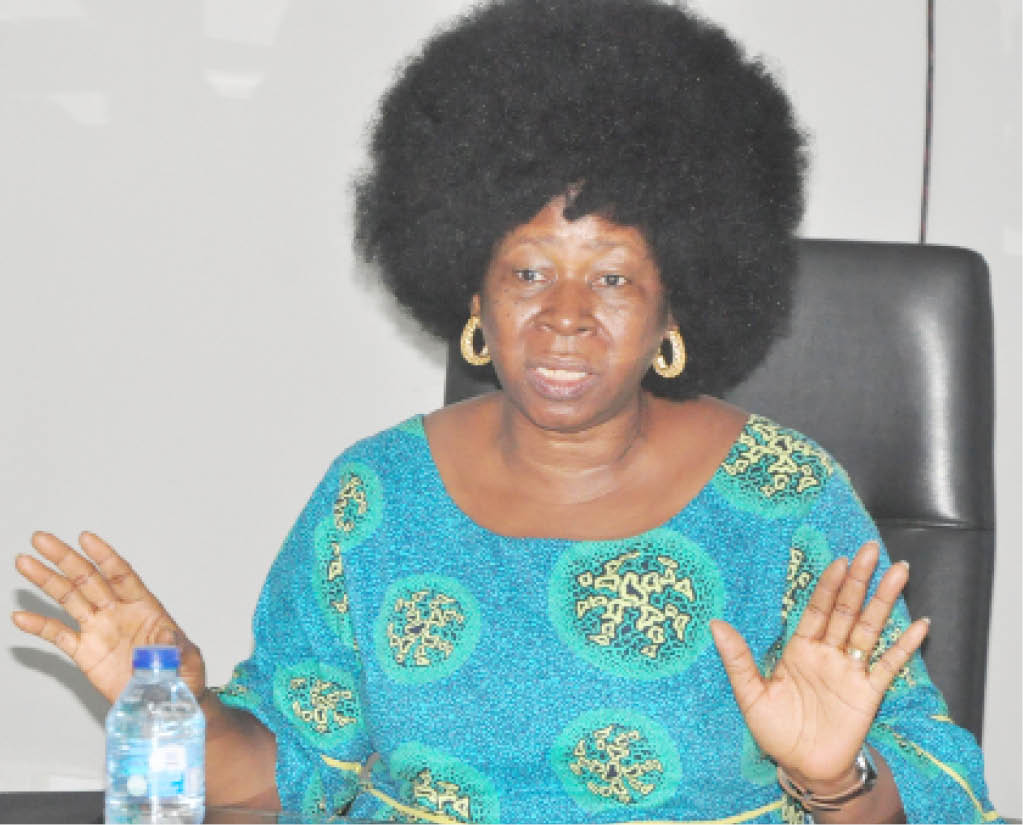The ActionAid Nigeria (AAN) has said that not less than 408m Nigerian youth, aged 15 – 29 are affected by armed conflict across the country.
The AAN Country Director, Ms. Ene Obi, said this on Friday in Abuja at the “The Learning and Dissemination of Policy Brief on PVE (preventing violent extremism) Implementation’.
Obi, represented by the Head of Programmes, AAN, Nkechi Ilochi-Kanny, said the affected 408m youth basically live in areas affected by armed conflict or organized violence.
According to her, seven years ago the United Nations Security Council (UNSC) adopted the groundbreaking resolution on Youth, Peace, and Security, which recognizes that young people play important band positive role to n the maintenance and promotion of international peace and security.
She also said that the resolution sparked momentum to create more inclusive peace and security efforts including preventing violent extremism and counter-terrorism.
“The United Nations Security Council Resolution, UNSCR, 2250 identifies five key pillars for action: Participation, Protection, Prevention, Partnership, and Disengagement and Reintegration, which she urged stakeholders and tiers of government to give youth the opportunities.
“By creating and implementing favourable policies that promote youth inclusion and give them a voice in the decision-making process at the local, state and national levels, as this would enable young people to participate meaningfully in peace-building processes.
“Sadly, young women are also the most vulnerable to violent extremist ideologies. About 408 million youth (ages 15-29) live in areas affected by armed conflict or organized violence. While we do not know how many of them are young women, we know that violent extremists target their rights and opportunities, and exploit harmful gender stereotypes and norms to advance their objectives.
“Efforts to prevent violent extremism leave young women on the margins. Although, they also risk being radicalized, very little is done understand their motivations and the gender dimensions that explain their decisions.
“We also see less action taken to de-radicalize and reintegrate young women and prevent stigma afterward. These must end as we work together to meet the challenge set out in Agenda 2030-to leave no one behind,” she said.
She, however, urged state and non-state actors to create enabling environments and safe spaces for young people that would enable them exercise the five instruments earlier mentioned.
She said, “We must build sustainable partnerships with young people to create opportunities for them and galvanize support for their voices to be heard. It is time for government to, organizations, and other stakeholders to empower young women and men to overcome practical realities of the state of our nation.
“Such as available resources, lack of power, lack of space to decide over their realities, and non-visibility that are preventing them from taking centre stage. Let us support the Nigerian youth who are ready, available, and willing to be advocates for themselves and their communities.”
Also, resource persons including Mr. Jaye Gaskia, who spoke on a Policy Brief titled ‘Strengthening Community Structures in The Prevention of Violent Extremism in Nigeria’ urged state governments to consider enacting legislation, and policies that establishing Local Conflict Management Alliances in each of the local government areas; Federal Government should work with State Governments to consider establishment of a Community Development Fund: and Federal Security agencies should work with communities as measures to prevent violent extremism.
Mr. Gbenro Olajuyigbe, who presented the second Policy Brief titled ‘Youth Inclusion in Politics and Governance: Pragmatic Strategy in Preventing Violent Extremism in Nigeria’, recommended that, “There is need to; Develop a National Youth Strategy; Political Party Strategic Plan for Youth Leadership; Engaging Youth in Violent Conflicts; Provide Social Protection Schemes; Prioritize Formal and Non-formal Education/Learning; and Targeted Policies for Youth that are Evidenced based and data.”
Also speaking, the Head PCVE (preventing and countering violent extremism) Implementation in the Office of the National Security Adviser (ONSA), Hajiya Mairo Musa Abbas, commended the GCERF (Global Community Engagement and Resilience Fund) and ActionAid Nigeria for their collaboration with ONSA in its continuous commitment in ensuring maximum implementation of the Policy Frame Work and National Action Plan (PF-NAP) through their effective interventions to Nigeria
She also said that the two policy briefs recognize the value of research and expertise to prevent and curb the menace of violent extremism in Nigeria.
“The policies are in line with the preventive components of the PF-NAP on PCVE and provides a framework to create a stronger sense of community involvement and the full participation of youths in the development process of the nation’s peaceful co-existence.
“PCVE should be pursued through diverse lens, based on the challenges involved in the implementation of the programmes; such as mistrust and lack of commitment to PCVE activities by some communities among others.
“These policies will serve as models for enhancing community resilience and ensuring youth-government collaboration to achieve seamless operationalization of PCVE spectrum in the affected communities.
“Although, a lot of efforts and interventions are ongoing in the PCVE space, it is still imperative to continue to improve on existing policies and programmmes to address the root causes of the menace of violent extremism. It is in line with the foregoing that the development of these two policies came about,” she said.

 Join Daily Trust WhatsApp Community For Quick Access To News and Happenings Around You.
Join Daily Trust WhatsApp Community For Quick Access To News and Happenings Around You.


